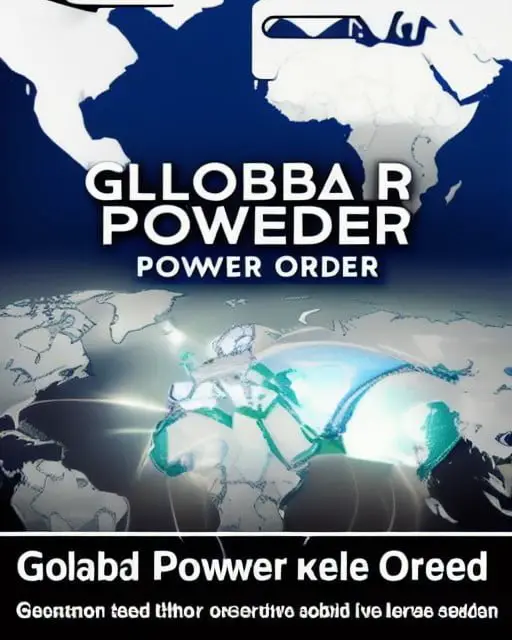The Rapidly Changing Global Power Order
The world is currently experiencing a significant shift in global power dynamics, with several nations emerging as new power centers. The traditional powerhouses of the United States and Europe are now facing competition from emerging economies like China, India, and Brazil. The balance of power is shifting, and this change is having significant implications for international relations and diplomacy.
The Shifting Dynamics of Global Power
The rise of emerging economies, particularly China, is one of the most significant changes in global power dynamics. China is now the world’s second-largest economy and is projected to overtake the United States by 2030. This shift in economic power is also translating into geopolitical power as China becomes more assertive in the South China Sea and other regions.
Another factor contributing to the changing global power order is the decline of the United States. The United States is still the world’s most powerful country, but its influence is waning as it faces challenges at home and abroad. The rise of populism and nationalism has eroded America’s soft power, while economic challenges and political polarization have weakened its ability to lead on the global stage.
The changing global power dynamics are also reflected in the emergence of new regional power centers. In the Middle East, Iran and Saudi Arabia are vying for dominance, while in Africa, Nigeria and South Africa are emerging as economic and political powerhouses. These new power centers are shifting the balance of power away from traditional Western-dominated institutions like the United Nations and the International Monetary Fund.
Implications for International Relations and Diplomacy
The changing global power order is having significant implications for international relations and diplomacy. Traditional alliances like NATO are being challenged as the United States becomes less reliable and countries like Turkey and Hungary move away from democratic norms. China is also challenging the United States’ global leadership, particularly in the Asia-Pacific region.
The rise of new power centers is also creating new opportunities for diplomacy and cooperation. Emerging economies like India and Brazil are seeking greater representation in global governance institutions like the United Nations and the World Trade Organization. This presents an opportunity for Western nations to work with these countries to create a more equitable and representative global order.
In conclusion, the rapidly changing global power order is a complex and multifaceted phenomenon that is reshaping the world as we know it. The rise of emerging economies and the decline of traditional powerhouses like the United States are shifting the balance of power and creating new geopolitical realities. As the world adjusts to this new order, it is essential to focus on diplomacy and cooperation to address the challenges and opportunities that arise.


